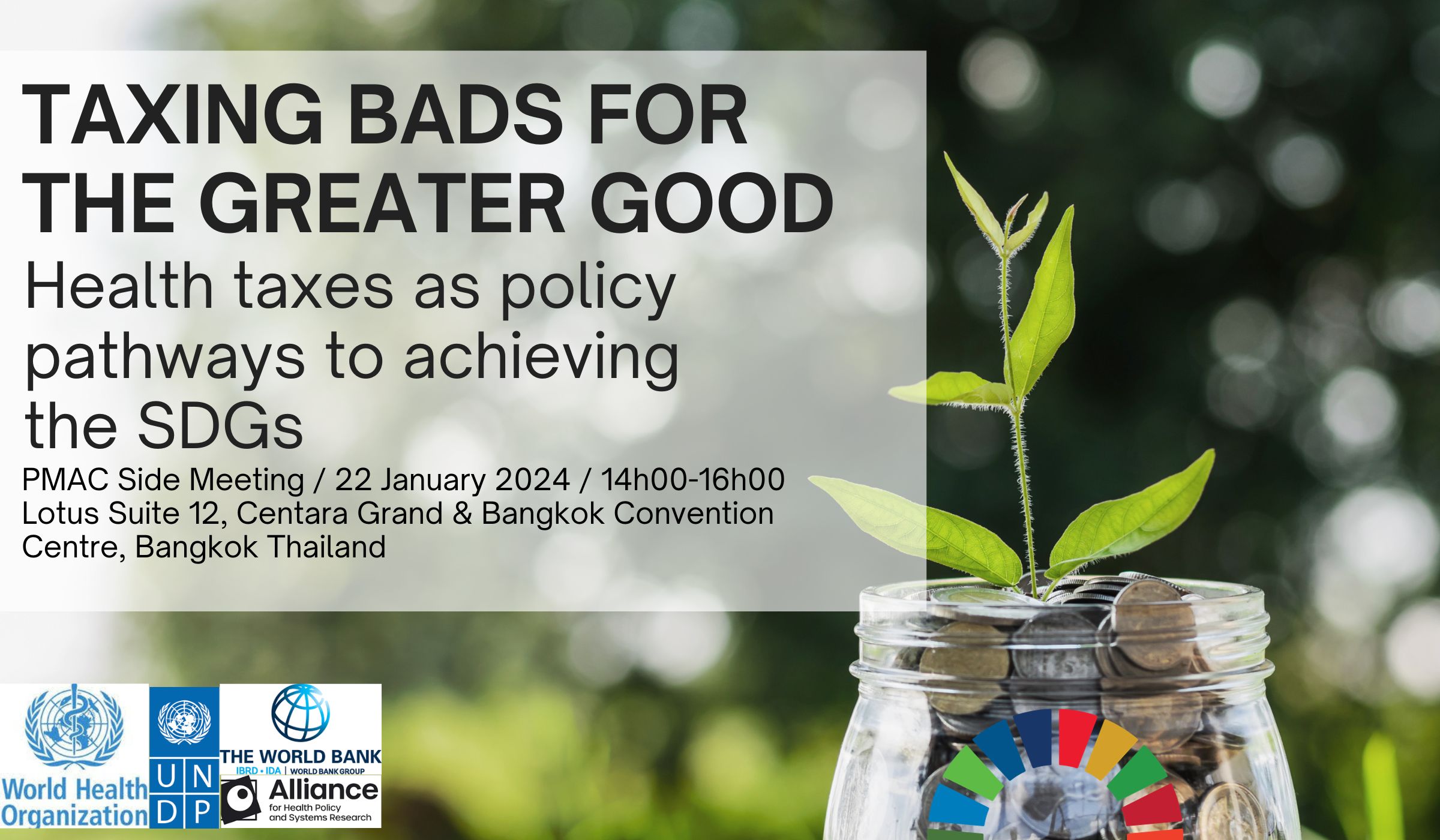Side Meetings
SMB202
Taxing Bads for the Greater Good: Health Taxes as Policy Pathways to Achieve the SDGs
22
Jan
- World Health Organization
- United Nations Development Programme
- World Bank
- Alliance for Health Policy and Systems Research

The private sector significantly impacts health via its products and practices. Commercial entities can contribute to global health issues, such as the rise in non-communicable diseases (NCDs) such as diabetes and cancer due to the consumption of tobacco, alcohol, and sugar-sweetened beverages (SSBs). To date, NCDs remain to be the leading cause of death worldwide.
Health taxes, designed to curb the consumption of such harmful products, offer undeniable health benefits by discouraging use and reducing the risk of chronic illnesses. These taxes also hold potential beyond health, aiding countries in achieving broader development goals. But, due to the effectiveness of health taxes in altering consumer behavior and potentially impacting profits, affected industries vehemently oppose their implementation using a variety of tactics.
In this session, international experts and country representatives will examine health taxes within the lens of the Sustainable Development Goals (SDGs), aiming to bolster societal support for these measures. The session will further address the contentious issue of industry interference in health tax policymaking and the consequences of prioritizing commercial interests over public health and sustainable development.
This side meeting will tackle the following questions:
- What makes a tax a “health tax”?
- How do health taxes impact health? (SDG 3)
- If health taxes are designed to reduce consumption, can they also boost domestic revenues which can potentially be used to finance SDG-related programmes?
- What are the labour market impacts of non-communicable diseases (NCDs) and health taxes? (SDG 8)
- Do health taxes exacerbate inequalities (SDG 1, SDG 10) ?
- How can taxes be used to achieve the SDGs related to climate / the environment? (SDG 13)
- How do affected industries interfere in the policy-making process?
- What are the concrete steps countries can take to ensure that they enjoy the full benefits of health taxes?

